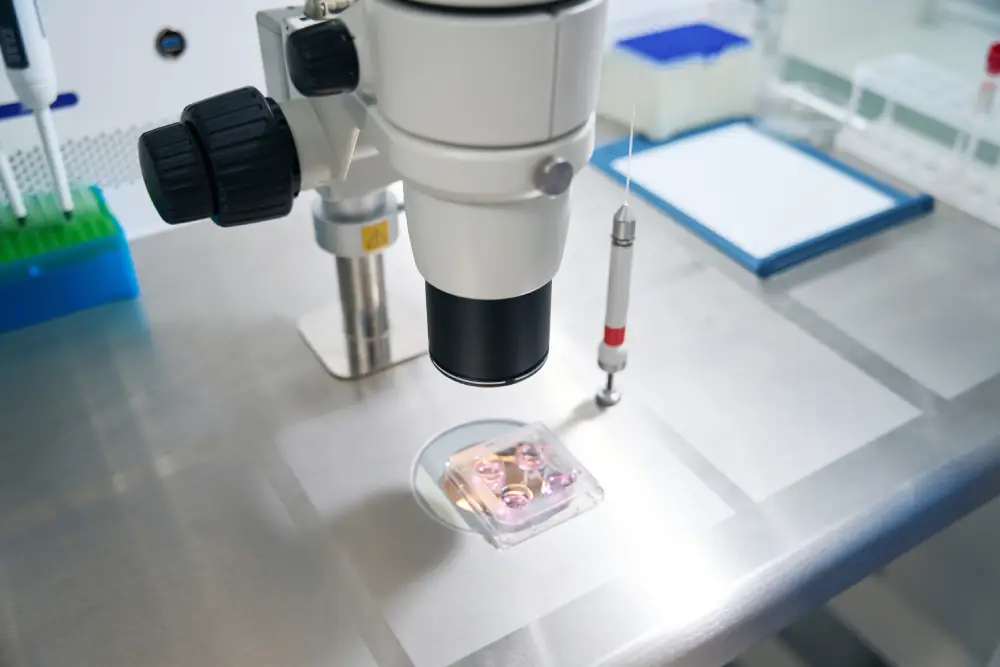
Achieving parenthood is a cherished dream for many couples, filled with anticipation and joy. However, for some couples, the path to parenthood can be challenging due to delayed conception, also known as infertility. This condition affects an estimated 10-15% of couples worldwide, often accompanied by feelings of frustration, anxiety, and emotional turmoil.
Delayed conception occurs when couples are unable to conceive after a year of regular and unprotected sexual intercourse. This can be due to various factors affecting both the male and female reproductive systems.
Underlying Causes of Delayed Conception:
The potential causes of delayed conception are diverse and can involve both the female and male reproductive systems. These factors can be broadly categorized into:
- Female Factors:
- Irregular or absent ovulation, blockages or damage to the fallopian tubes, endometriosis, and hormonal imbalances are common female factors contributing to delayed conception.
- Male Factors:
- Low sperm count, poor sperm motility, abnormal sperm morphology, and genetic abnormalities in sperm are significant male factors affecting fertility.
- Lifestyle Factors:
- Smoking, excessive alcohol consumption, unhealthy diet, and excessive weight gain can also contribute to delayed conception.
Seeking Medical Guidance: The Crucial First Step:
Delayed conception can be a distressing experience for couples, often accompanied by feelings of inadequacy and worry. The first and most crucial step is to seek professional guidance from a gynecologist or fertility specialist. These healthcare professionals can provide a comprehensive evaluation, including medical history, physical examination, and diagnostic tests, to identify the underlying cause of delayed conception.
Treatment Options Tailored to Individual Needs:
Once the cause of delayed conception is determined, the gynecologist or fertility specialist will tailor a personalized treatment plan. Treatment options may include:
- Medications:
- Medications can be used to regulate ovulation, stimulate sperm production, or treat underlying medical conditions that may be hindering conception.
- Surgery:
- In some cases, surgical procedures may be necessary to address anatomical issues such as endometriosis, fibroids, or blockages in the fallopian tubes.
- Assisted Reproductive Techniques (ART):
- ART procedures, such as in vitro fertilization (IVF), offer hope for couples with severe infertility. IVF involves collecting eggs and sperm, fertilizing them in a lab, and then implanting the fertilized embryo into the woman’s uterus.
- Egg or Sperm Donation:
- In cases where there are no viable eggs or sperm, donation from a known or anonymous donor can be an option to increase the chances of conception.
Lifestyle Modifications: Strengthening Fertility Potential:
Adopting a healthy lifestyle can significantly enhance fertility potential. This includes:
- Healthy Diet:
- A balanced diet rich in fruits, vegetables, whole grains, and lean proteins is essential for overall health and reproductive well-being.
- Regular Exercise:
- Engaging in regular physical activity helps maintain a healthy weight, improves circulation, and boosts overall health, including fertility.
- Smoking Cessation:
- Smoking is a major risk factor for infertility, and quitting smoking can significantly improve fertility outcomes.
- Stress Management:
- Chronic stress can negatively impact fertility. Practicing stress management techniques, such as yoga, meditation, or deep breathing exercises, can help reduce stress levels and improve fertility potential.
- Maintaining a Healthy Weight:
- Being overweight or underweight can affect hormonal balance and reduce fertility. Maintaining a healthy weight can improve overall health and reproductive function.
Embracing Hope and Seeking Support:
Delayed conception can be emotionally challenging, and couples may experience feelings of sadness, anxiety, and frustration. Seeking support from loved ones, joining support groups, and talking to a therapist can provide valuable emotional support and guidance.
Conclusion:
Delayed conception can be a challenging experience, but with timely medical evaluation, appropriate treatment options, and supportive measures, many couples can achieve their dream of parenthood. Medical advancements, coupled with a comprehensive approach to treatment, lifestyle modifications, and emotional support, offer hope and optimism for couples struggling with delayed conception on their journey towards parenthood.
